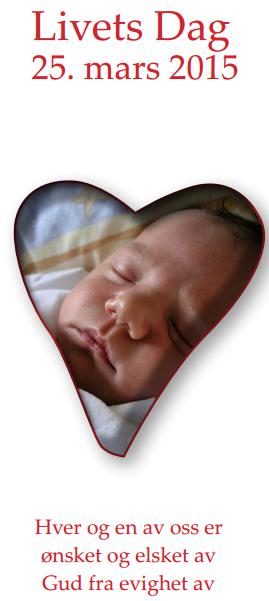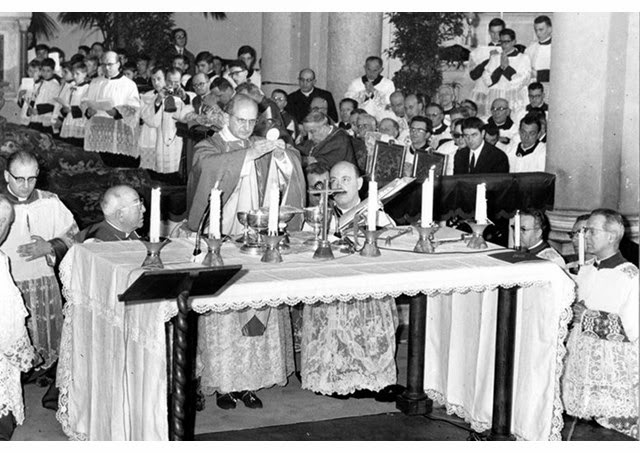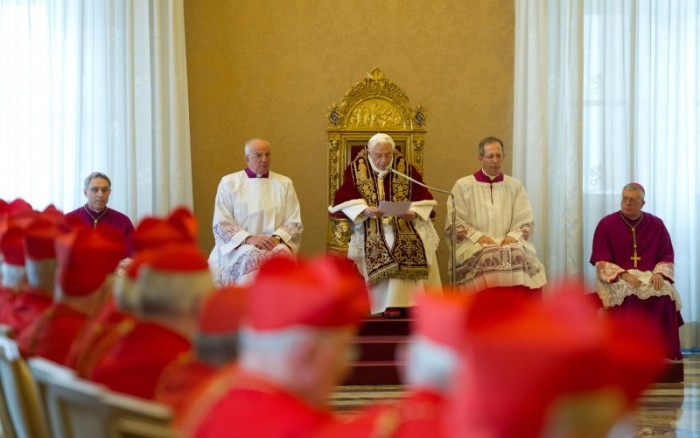Dokumentet Inter Oecumenici ble utgitt av Consilium (komiteen nedsatt for å implementere Vatikankonsilets bestemmelser om liturgien) 26. september 1964, og bestemmelsene i dette dokumentet skulle tre i kraft 1. søndag i fasten kommende år, 7. mars 1965. Det var altså dette dokumentet som fikk pave Paul VI til å feire den første messen (stort sett) på italiensk denne dagen.
Om bruk av morsmålet sier Inter Oecumenici:
57. For Masses, whether sung or recited, celebrated with a congregation, the competent, territorial ecclesiastical authority on approval, that is, confirmation, of its decisions by the Holy See, may introduce the vernacular into:
a. the proclaiming of the lessons, epistle, and gospel; the universal prayer or prayer of the faithful;
b. as befits the circumstances of the place, the chants of the Ordinary of the Mass, namely, the Kyrie, Gloria, Credo, Sanctus-Benedictus, Agnus Dei, as well as the introit, offertory, and communion antiphons and the chants between the readings;
c. acclamations, greeting, and dialogue formularies, the Ecce Agnus Dei, Domine, non sum dignus, Corpus Christi at the communion of the faithful, and the Lord’s Prayer with its introduction and embolism.
Missals to be used in the liturgy, however, shall contain besides the vernacular version the Latin text as well.
58. The Holy See alone can grant permission for use of the vernacular in those parts of the Mass that the celebrant sings or recites alone.
59. Pastors shall carefully see to it that the Christian faithful, especially members of lay religious institutes, also know how to recite or sing together in Latin, mainly with simple melodies, the parts of the Ordinary of the Mass proper to them.
Og om forandringer i rubrikkene sier Inter Oecumenici bl.a.:
48. Until reform of the entire Ordo Missae, the points that follow are to be observed:
a. The celebrant is not to say privately those parts of the Proper sung or recited by the choir or the congregation.
b. The celebrant may sing or recite the parts of the Ordinary together with the congregation or choir.
c. In the prayers at the foot of the altar at the beginning of Mass Psalm 42 is omitted. All the prayers at the foot of the altar are omitted whenever there is another liturgical rite immediately preceding.
d. In solemn Mass the subdeacon does not hold the paten but leaves it on the altar.
e. In sung Masses the secret prayer or prayer over the gifts is sung and in other Masses recited aloud.
f. The doxology at the end of the canon, from Per ipsum through Per omnia saecula saeculorum. R. Amen, is to be sung or recited aloud. Throughout the whole doxology the celebrant slightly elevates the chalice with the host, omitting the signs of the cross, and genuflects at the end after the Amen response by the people.
g. In recited Masses the congregation may recite the Lord’s Prayer in the vernacular along with the celebrant; in sung Masses the people may sing it in Latin along with the celebrant and, should the territorial ecclesiastical authority have so decreed, also in the vernacular, using melodies approved by the same authority.
h. The embolism after the Lord’s Prayer shall be sung or recited aloud.
i. The formulary for distributing holy communion is to be, Corpus Christi. As he says these words, the celebrant holds the host slightly above the ciborium and shows it to the communicant, who responds: Amen, then receives communion from the celebrant, the sign of the cross with the host being omitted.
j. The last gospel is omitted; the Leonine Prayers are suppressed.
k. It is lawful to celebrate a sung Mass with only a deacon assisting.
l. It is lawful, when necessary, for bishops to celebrate a sung Mass following the form used by priests.
 25. mars er dagen for Livsvern i Oslo katolske bispedømme, og brosjyren til årets markering av dagen innledes slik:
25. mars er dagen for Livsvern i Oslo katolske bispedømme, og brosjyren til årets markering av dagen innledes slik:

